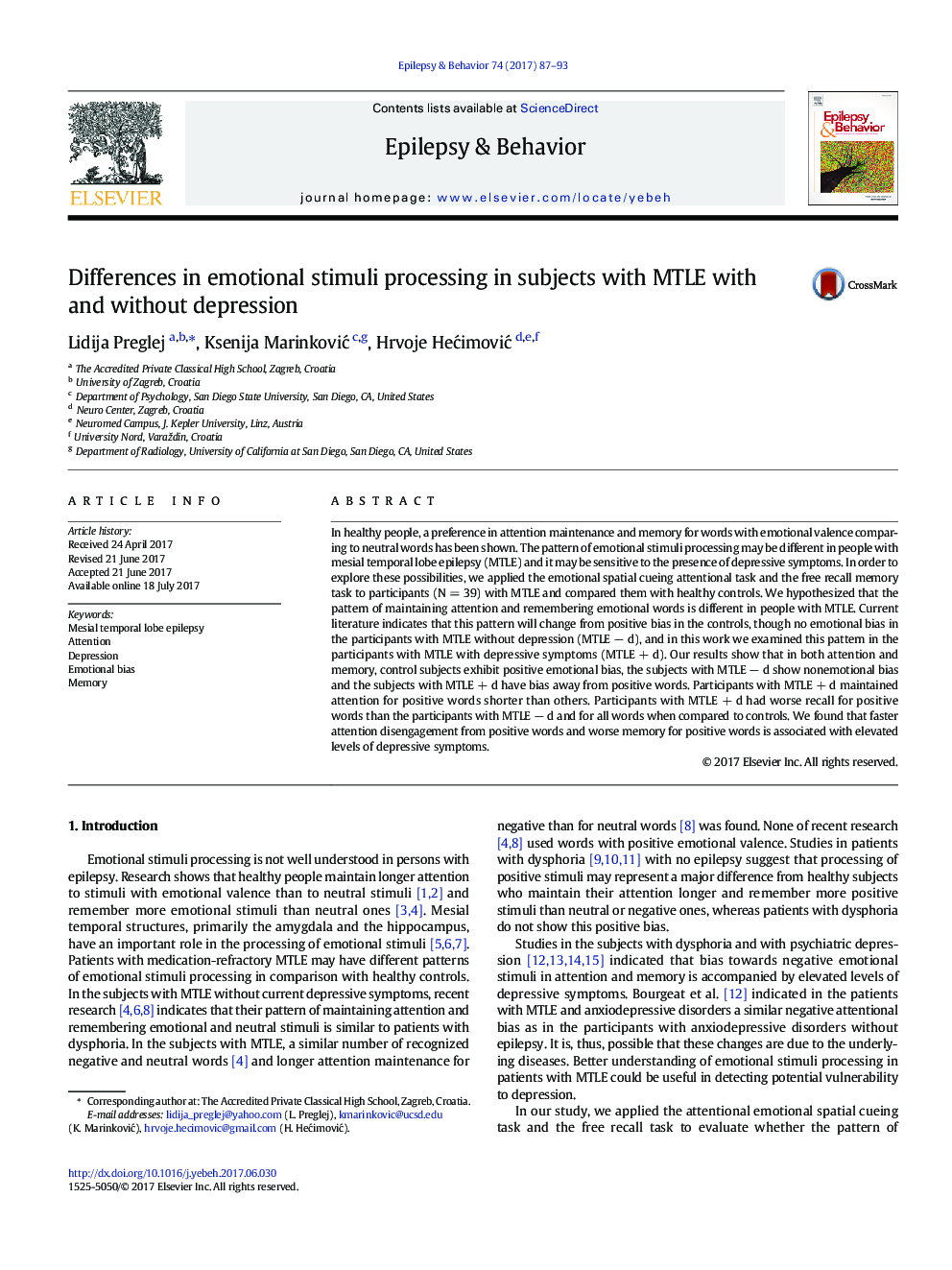| Article ID | Journal | Published Year | Pages | File Type |
|---|---|---|---|---|
| 5628215 | Epilepsy & Behavior | 2017 | 7 Pages |
â¢The pattern of emotional stimuli processing may be different in people with mesial temporal lobe epilepsy and it may be sensitive to the presence of depressive symptomsâ¢We applied the emotional spatial cueing attentional task and the free recall memory task to MTLE subjects and healthy controls.â¢In attention and memory control, subjects exhibit positive emotional bias, the MTLE-d subjects show non-emotional bias, and the MTLE + d subjects have bias away from positive words.â¢MTLE + d participants maintained attention for positive words shorter than others and had worse recall for positive words compared to the MTLE-d.â¢Faster attention disengagement from positive words and worse memory for positive words is associated with elevated levels of depressive symptoms.
In healthy people, a preference in attention maintenance and memory for words with emotional valence comparing to neutral words has been shown. The pattern of emotional stimuli processing may be different in people with mesial temporal lobe epilepsy (MTLE) and it may be sensitive to the presence of depressive symptoms. In order to explore these possibilities, we applied the emotional spatial cueing attentional task and the free recall memory task to participants (N = 39) with MTLE and compared them with healthy controls. We hypothesized that the pattern of maintaining attention and remembering emotional words is different in people with MTLE. Current literature indicates that this pattern will change from positive bias in the controls, though no emotional bias in the participants with MTLE without depression (MTLE â d), and in this work we examined this pattern in the participants with MTLE with depressive symptoms (MTLE + d). Our results show that in both attention and memory, control subjects exhibit positive emotional bias, the subjects with MTLE â d show nonemotional bias and the subjects with MTLE + d have bias away from positive words. Participants with MTLE + d maintained attention for positive words shorter than others. Participants with MTLE + d had worse recall for positive words than the participants with MTLE â d and for all words when compared to controls. We found that faster attention disengagement from positive words and worse memory for positive words is associated with elevated levels of depressive symptoms.
